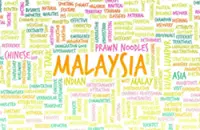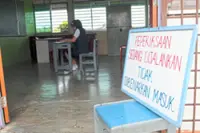Back in the early 1990s, I spent a lot of free time playing computer games, and one in particular that really caught my attention was a game called Frontier: Elite II.
You owned a spaceship and you were free to explore an entire galaxy of stars and planets in whichever way you wished: as a peaceful merchant, an asteroid miner, a bounty hunter, a dastardly space pirate – it was all up to you. And it did all that from the confines of two floppy disks, each one holding an amazing 1.44MB of data.





